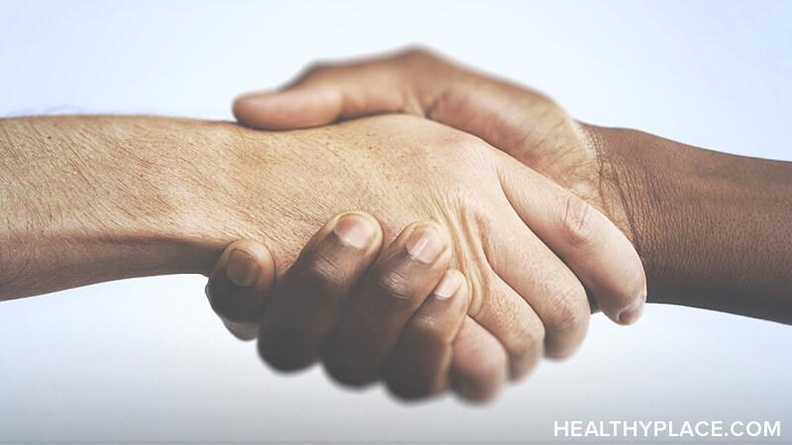Learning to Accept Help When Living With a Mental Illness

When I think of the word 'help,' I think about how hard it is to ask for and accept help. It is usually the most difficult when we are first diagnosed with a mental illness. Unfortunately, that's when those who live with mental illness need help the most. This blog will explore why asking for help can be so hard and the steps we can take to make the process easier.
Why Is It Difficult to Ask for and Accept Help?
Let me preface this by stating: We all struggle, at some point in our lives, with feeling uncomfortable asking for help and we all have differing reasons why. That aside, let's explore some of the common reasons people with mental illness find it hard to ask for and accept help:
>When we are first diagnosed with a mental illness we suddenly need help from psychiatrists, our family and friends and even those who don't really know us at all-- community support workers and social workers for example. Suddenly all of these people are in our lives. The initial diagnosis is scary and realizing we cannot recover on our own, that we do require help, is frightening as well. We all want to be self-sufficient in life.
>As we work to become well, not an easy feat, we come to an understanding: We cannot recover on our own and with this realization is a feeling of powerlessness.
>We fear that if we do accept support from people, those same people will leave us once we become well.
>We fear becoming dependent on people; we fear we will be unable to function without them.
These examples all involve fear and this makes sense. It makes perfect sense. Being diagnosed with a mental illness is probably the most frightening thing that will ever happen to us and allowing people to help us is not easy. We want to tackle life on our own, but learning to ask for and accept help is part of self-care.
Learning to Accept Help in Mental Illness Recovery
It's important to remember that people want us to succeed. Our doctor and our family and friends are on our side--working with us to recover and become part of life again. And we will, it just takes time and patience and, you got it, allowing people into our lives.
Throughout my journey with mental illness--over a decade of trying to figure the whole thing out--I have a learned a few things that have helped me accept support:
>Remember that people all fall from time to time and we will be there to support those who have helped us in our recovery when they need it. We will eventually return the favor.
>We do not need to feel shame associated with accepting help or feel that accepting help is a weakness. Focus on becoming well again.
People want to support and help us in our recovery--it often makes them feel good. Doing positive things for people brings meaning to our lives. Life isn't always easy (no kidding!) and neither is it always difficult. When it is difficult, and when you need support, take a minute and ask yourself if it's really such a bad thing.
APA Reference
Jeanne, N.
(2013, February 4). Learning to Accept Help When Living With a Mental Illness, HealthyPlace. Retrieved
on 2026, January 23 from https://www.healthyplace.com/blogs/recoveringfrommentalillness/2013/02/learning-to-accept-help-when-living-with-a-mental-illness
Author: Natalie Jeanne Champagne
By me, the skill to seek and to accept help exhibits a crucial life ability, which ones improves on its own our global wellness. In the meantime, this life performance isn't so easy to realize throughout daily interpersonal relationship, because this issue is overloaded with many prejudices. Indeed, it is our primordial fear to be criticized from others as weak and powerless person. When it is in the question mentally ill persons, this fear obtains frightening dimensions, whith fatal consequences. Therefore, your smart suggestion to learn to seek and accept help when living with mental illness indicates great importance in satisfying recovering from any mental disorder. Otherwise, mentally ill patients would be exposed to social exemptions as morbid psycho-social statement.